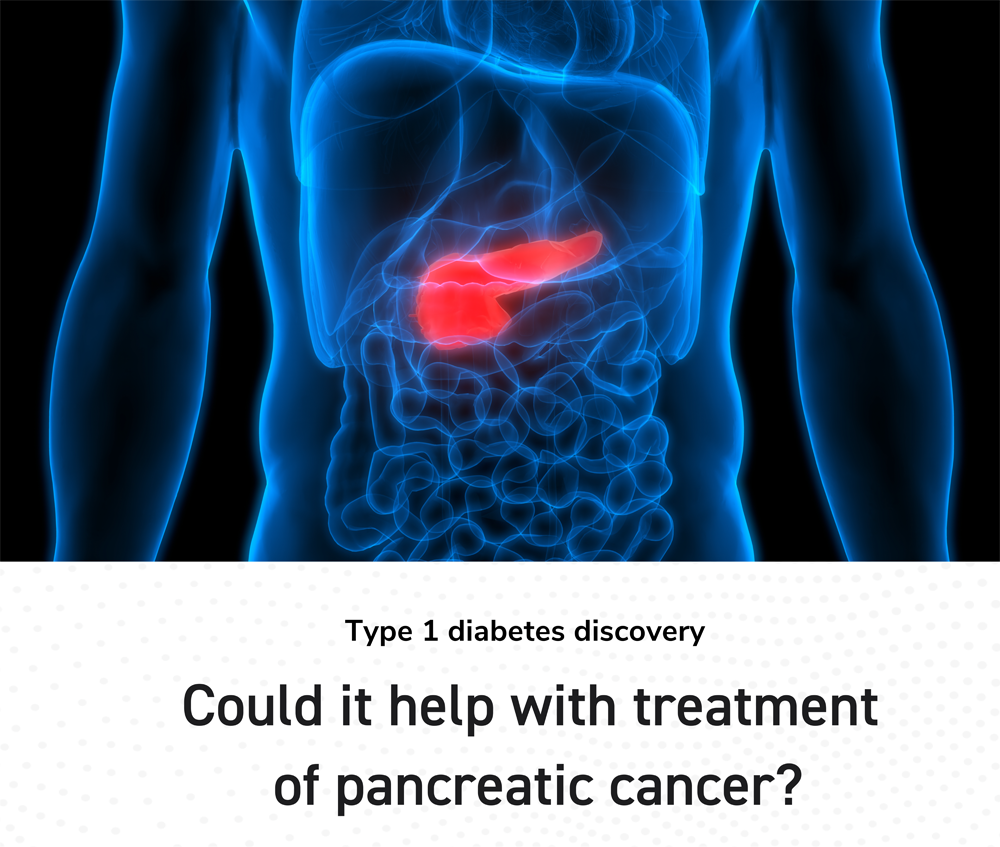
We now know why T cells flood the pancreas for Type 1 diabetes, and this discovery may improve cancer cell and gene therapy.
CAR T-cell therapy, a novel immunotherapy approved to treat blood cancers, is gaining momentum for the treatment of solid tumors. Doctors remove some of patients’ T cells and add the gene for a receptor, called a chimeric antigen receptor (CAR), that binds to a specific protein or antigen on the patient’s cancer cells.
This type of cell and gene therapy is already proven to work for leukemia, lymphoma and multiple myeloma. One of the challenges with solid tumor cancers – like pancreatic cancer, brain cancer and lung cancer – is the T cells eventually tire out.
What if there was a way to help the body replenish the stock of T cells in the tumor environment? A type 1 diabetes discovery may help develop more effective CAR T-cells for pancreatic cancer.
Research into type 1 diabetes provides opening
Andrea Schietinger, PhD, a tumor immunologist at Memorial Sloan Kettering Cancer Center, hoped to correlate T cell behavior in type 1 diabetes to pancreatic cancer. Her research team’s findings were published on the cancer center’s website.
Dr. Schietinger started with a research project on mice to understand why T cells continuously populate the pancreas in type 1 diabetes. She used mice models to test her theory: A stem-like T cell parks in a lymph node near the pancreas and resupplies fighter T cells in the organ.
Type 1 diabetes occurs when the pancreas doesn’t create enough insulin to lower the body’s blood sugar/glucose levels. T cells then swarm to the pancreas and kill the beta cells needed to create the insulin.
“The researchers noted other curiosities,” the article reads. “The T cells didn’t last very long in the pancreas. Rather, they killed a few beta cells and then they themselves died. But a fresh crop of autoreactive T cells continually arrived in the pancreas to replace those that died.”
This suggests the stem T cells in the lymph nodes resupply the fighter T cells in the pancreas. This revealed more understanding of diabetes.
“If the T cells weren’t replaced, they would be unable to cause disease because they die too quickly,” states the article.
The discovery of stem cells sending T cells into the organ also uncovers a potential avenue for treating pancreatic cancer.
What this discovery means for CAR T cells for pancreatic cancer
While the stem T cells seem to contribute to causing type 1 diabetes, they may help treat pancreatic cancer. They can replenish active T cells and prevent CAR T cell exhaustion – a critical challenge in treating solid tumors.
If the stem cells could be added to the environment and regularly produce new active T cells, this could make this type of cell and gene therapy more effective. Dr. Schietinger and her team mentioned translating this information “from diabetes to cancer, to help keep immune cells fighting cancer for longer.”
This type of research is pivotal to improving the life expectancy of patients with pancreatic cancer. The five-year survival rate, according to the American Cancer Society, is only 10%. For cases where surgery isn’t possible – meaning the cancer is likely advanced – the five-year survival rate is just 3%.
Alliance for Cancer Gene Therapy helps researchers and laboratories at the top cancer centers find new ways to treat cancer through cell and gene therapies. We’ve funded breakthrough CAR T therapies for certain blood cancers – therapies now approved for use by the FDA. We’re now focused on funding for life-changing research initiatives for pancreatic cancer with the support of our donors.
Please donate to our mission so we can win this fight against cancer and uncover the cures we’ve been seeking for decades.
Page sources
- Discovery of a Stem-like T Cell in Type 1 Diabetes Holds Potential for Improving Cancer Immunotherapy, Sloan Kettering Institute Scientists Say. Memorial Sloan Kettering Cancer Center. Retrieved from: https://www.mskcc.org/news/discovery-stem-cell-type-1-diabetes-holds-potential-improving-cancer-immunotherapy-sloan-kettering-institute-scientists-say. Accessed: 12/6/2021.
- Survival Rates for Pancreatic Cancer. American Cancer Society. Retrieved from: https://www.cancer.org/cancer/pancreatic-cancer/detection-diagnosis-staging/survival-rates.html. Accessed: 01/04/2021.



